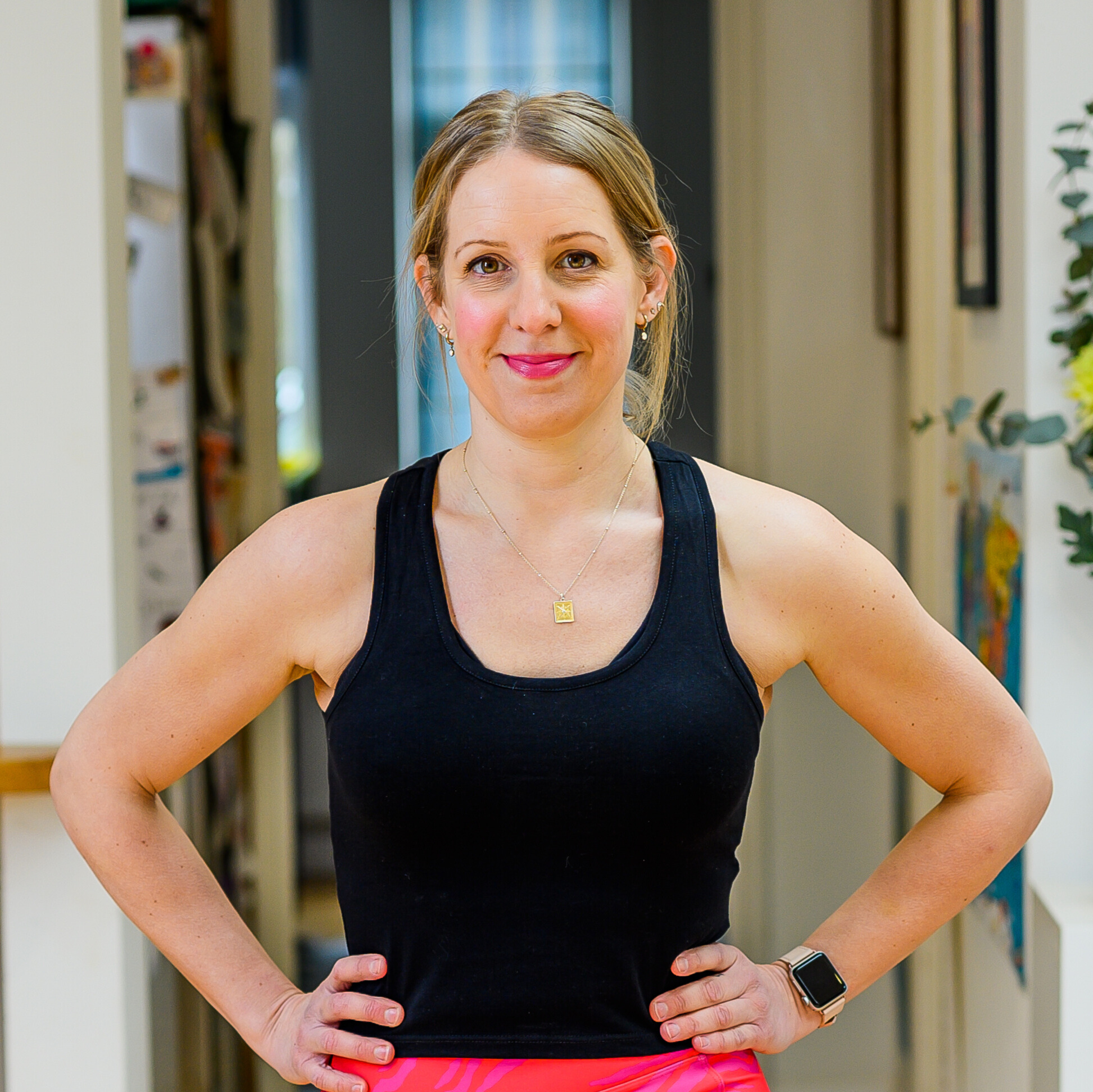Best scales for body fat
Keep tabs on fat percentage and muscle mass with the best scales for body fat

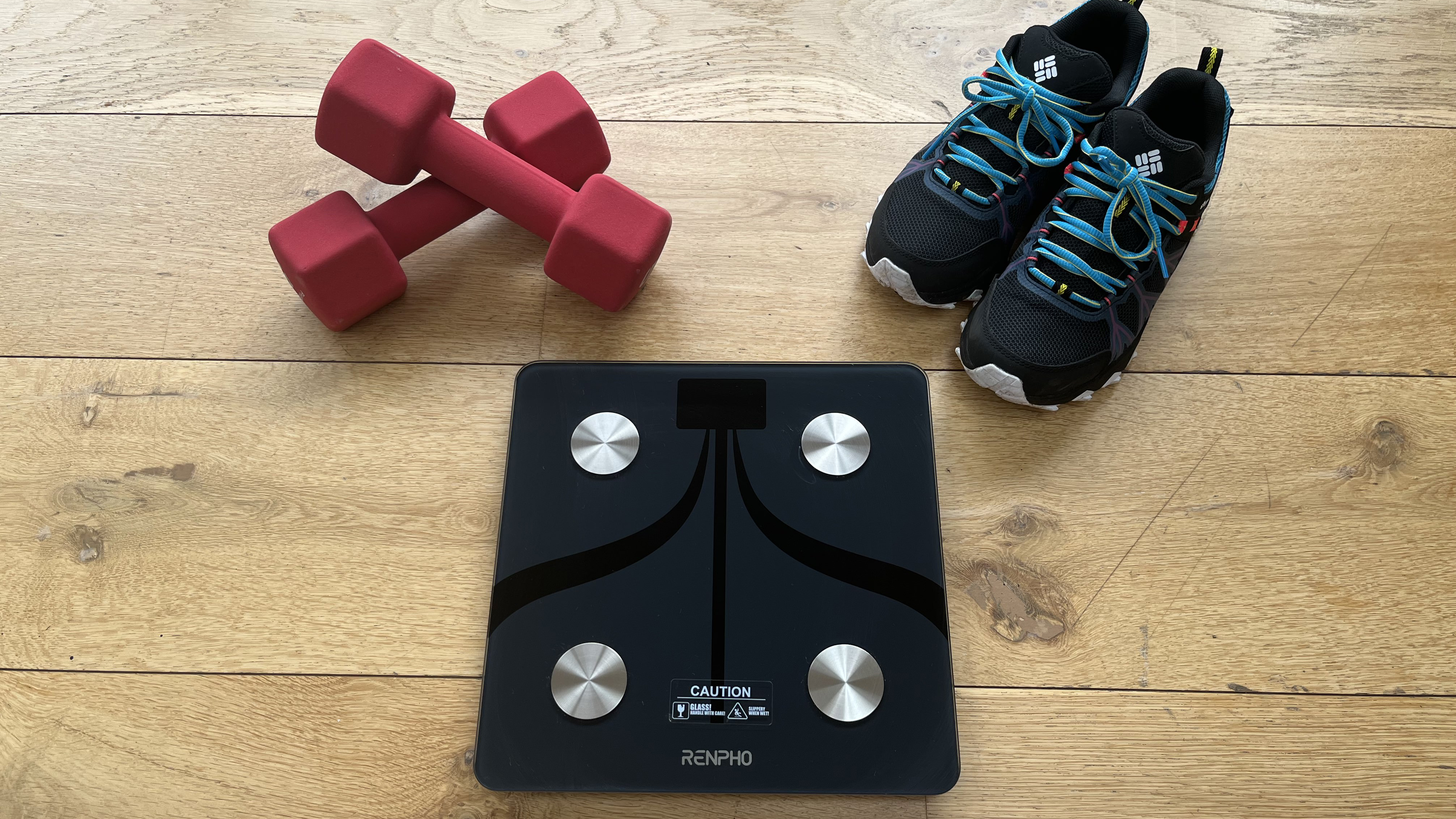
Research has shown that the best scales for body fat can increase the frequency of self-weighing and boost weight loss.
They often look similar to normal scales, but use smart tech to measure weight and body composition – the relative percentages of fat, muscle and water in the body. Tracking how much fat and muscle make up the body can help give an overview into health and fitness, and often encourage users to up their activity levels and improve their nutritional habits.
The best scales for body fat can cost anything from $20-$200, and the more you pay the more features you can expect to get. Cheaper models tend to only track weight and BMI, while the more expensive models have a wider range of body composition metrics covered, as well as advanced insights on the companion apps.
Read on as we’ll take a deep dive into some of the bestsellers, looking at design, price, performance, accuracy and the pros and cons of each.
Best scales for body fat
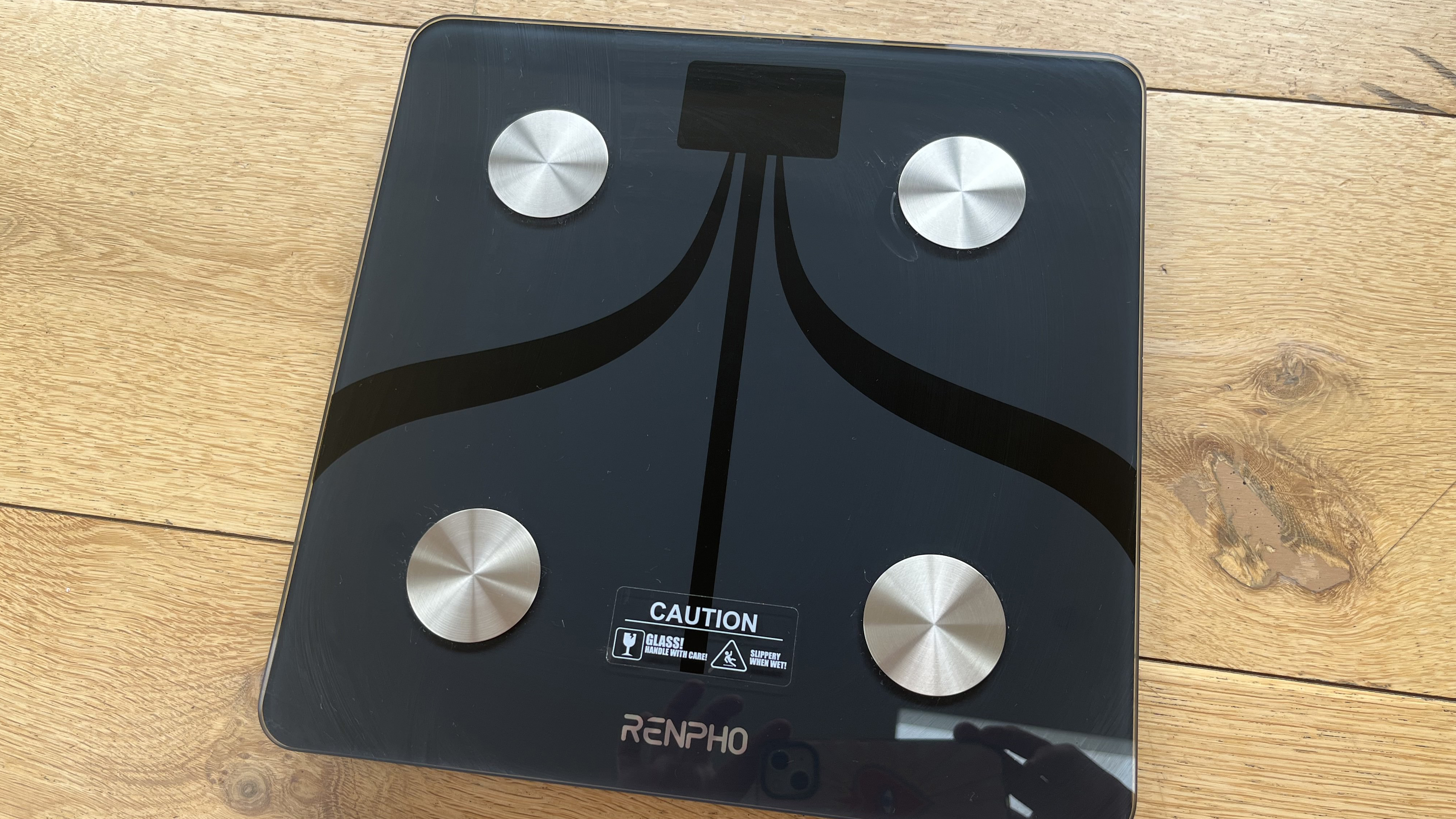
1. Renpho Smart Body Fat scales
Our expert review:
Specifications
Reasons to buy
Reasons to avoid
The Renpho Smart Body Fat Scale often tops the list of the best scales for body fat and for good reason. Despite its low price, it’s quick and easy to set up, very accurate and has an impressive companion app that takes a deep dive into the stats.
The Renpho Health app also syncs with MyFitnessPal, Apple Health, Fitbit, Google Fit and Samsung Health, making it an easy one-stop shop to access all your health and fitness data. It’s smart and well designed, has a durable tempered glass surface and is a great way to keep track of your health. Available measurements from the scale include weight, body fat percentage, muscle mass and bone mass estimates.
These scales get 4.4 out of 5 stars on Amazon, with a 71% of users giving it five out of five stars. Top reviews praise the device for being affordable and easy to use, with one saying: “Great set of scales and if you download the app, it’s a fantastic way of keeping track of your weight.” Another reviewer said the app reveals extensive health data and is “great for tracking progress towards a target”. Negative reviews cited issues with “very different readings” for body fat and skeletal muscle percentages dependent on the mode.
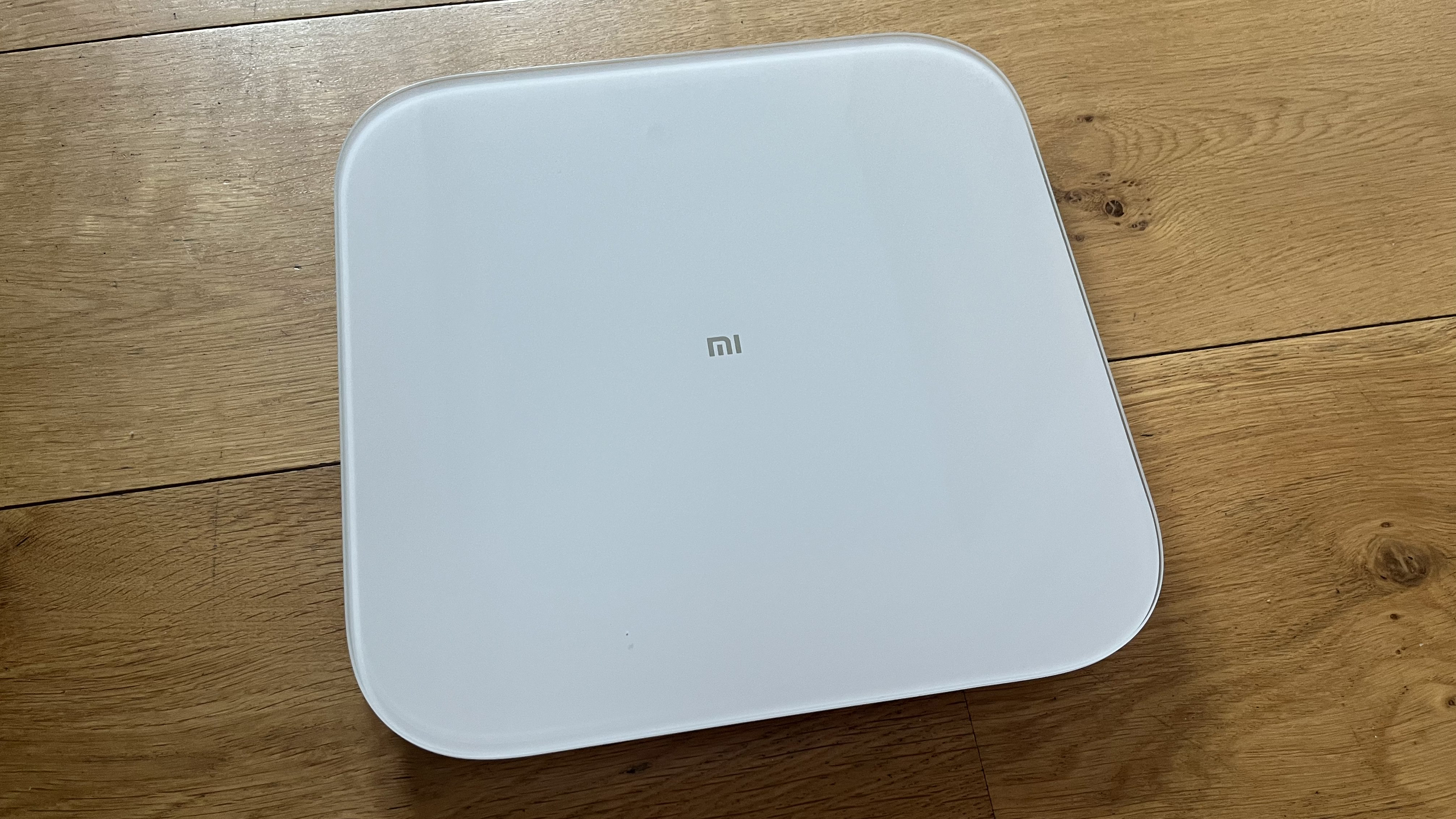
2. Xiaomi Mi 2 scales
Our expert review:
Specifications
Reasons to buy
Reasons to avoid
The Xiaomi Mi 2 is a solid entry-level smart scale for tracking body composition. It looks premium despite the low price, and the app provides some useful insights. It connects via Bluetooth but the lack of Wi-Fi means you can only use it with your phone and the app open.
The scale itself only displays weight, so you’ll need to open the Zepp Life app for more data on the 13 body composition metrics it measures (which include body fat and muscle mass, amongst other things).
We found the body type feature on the app rather off-putting if not mildly insulting, with labels ranging from ‘thick set’ to ‘skinny’, which feels out-dated and potentially damaging language. If you can put that aside, it’s a decent and affordable smart scale.
These scales get 4.5 out of 5 stars on Amazon, with an impressive 74% of users giving it five out of five stars. Top reviews praise the device for being “super easy to use” with a nice design. One reviewer said it was great value for money. Negative reviews cited issues with accuracy, with one saying: “The accuracy of anything other than weight is questionable as they don't seem to cope at all well with anyone with a more muscular build. I do have some weight to lose but it's reporting that I need to lose 38kg, which would require surgery to remove limbs.”
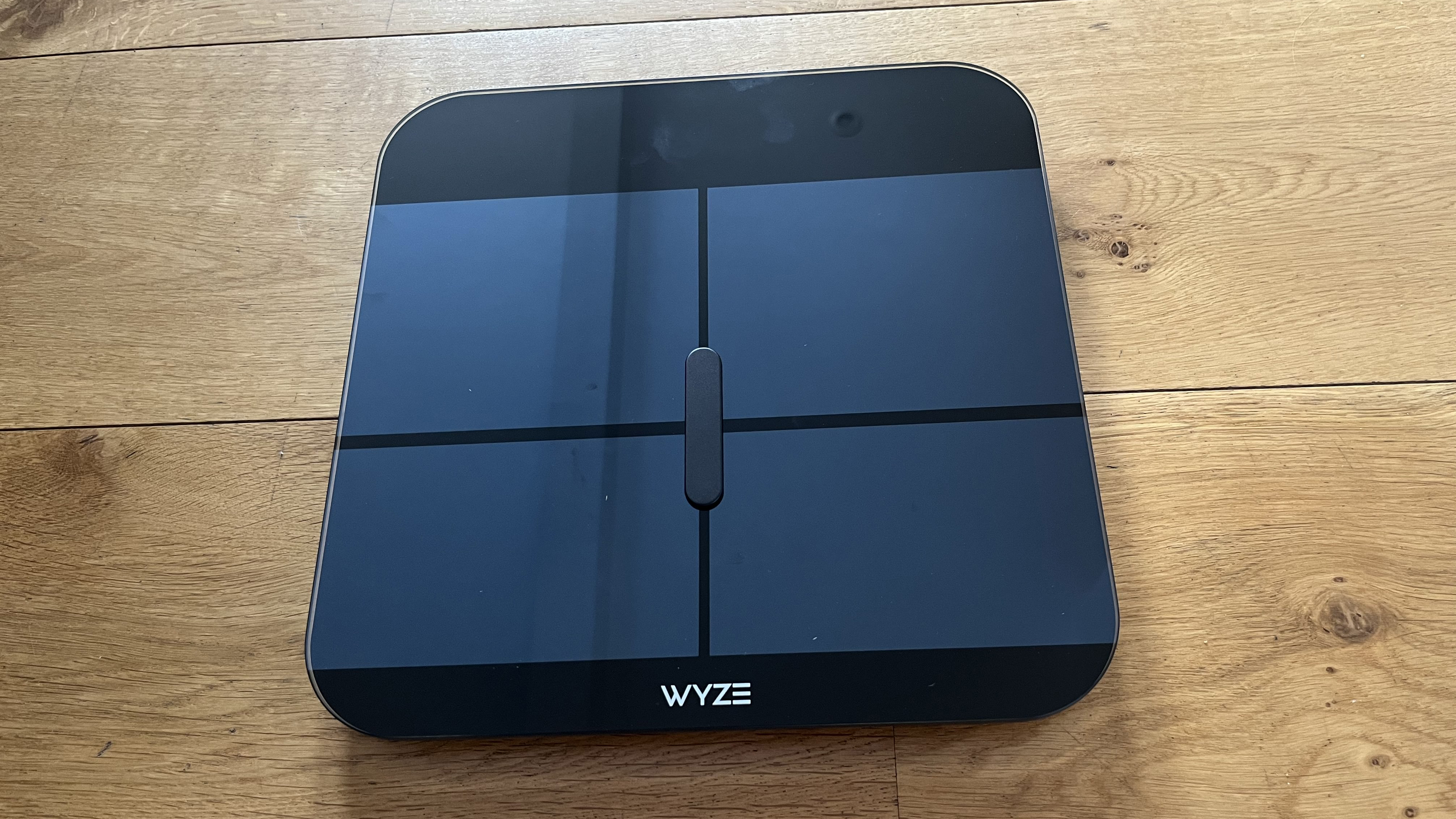
3. Wyze Scale X
Our expert review:
Specifications
Reasons to buy
Reasons to avoid
The Wyze Scale X gives a detailed overview of health and fitness data at a budget-friendly price. It also provides weight trends so you can monitor changes in body composition.
It connects easily via Bluetooth but that means you need the companion app open to record weigh-ins. Like most smart scales, it’s battery powered, and collates all your health and fitness data together if you pair it with Apple Health, Google Fit or Fitbit. We think it gives a big bang for the buck with its inbuilt heart rate monitor – a great way to measure cardiovascular health and fitness.
Our main complaint is there is no context or insights on the data recorded, but if you don’t mind that it’s an affordable and decent choice for anyone tracking body composition stats like body fat and muscle mass.
The Wyze Scale X gets 4.6 out of 5 stars on Amazon, with 79% of reviewers giving it the full five stars. Positive reviews praised the device for its quality and usability. One user said it was “probably the only scale you will need”, while another reviewer said it was “nearly perfect”.
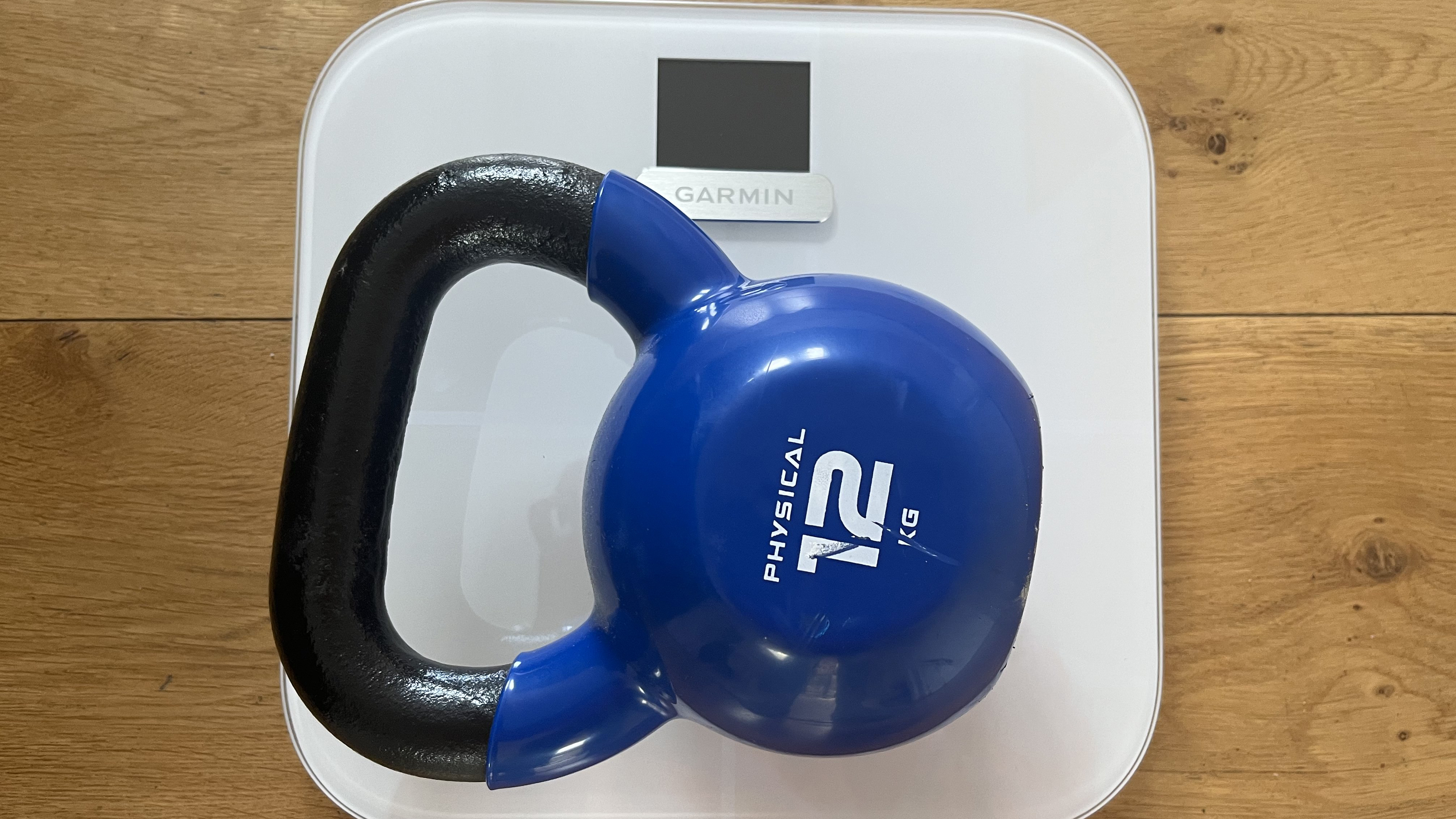
4. Garmin Index S2
Our expert review:
Specifications
Reasons to buy
Reasons to avoid
With a color display, better sensors and more body composition metrics, the Garmin Index S2 is an upgrade from the older Index Smart scale. It syncs well via the Garmin Connect app so you can see all your data in one place.
What is lacking here however, is any context about the stats – in fact the scales and app offer the same information, with the exception of the health trends graphs on the app. Given that it costs $149.99 / £129.99, we would expect more advanced insights from Garmin than just a history of your weight and body composition. It does, however, track multiple weigh-ins over the course of a day, so you can see how your weight might fluctuate from morning to night.
The Garmin Index S2 does what it says and does it well, measuring fat percentage, muscle, bone density and water in your body. But you might prefer to save some money and get a cheaper device.
The Garmin Index S2 scores 4.4 out of 5 on Amazon, with an impressive 73% of users giving it five out of five stars. Fans of the device love how easily it connects to the Garmin app and Garmin watch. One user said: “I like that it displays more data than just your weight”. Negative reviews cited issues with it being unreliable and fiddly, while one user said it gave inaccurate readings.
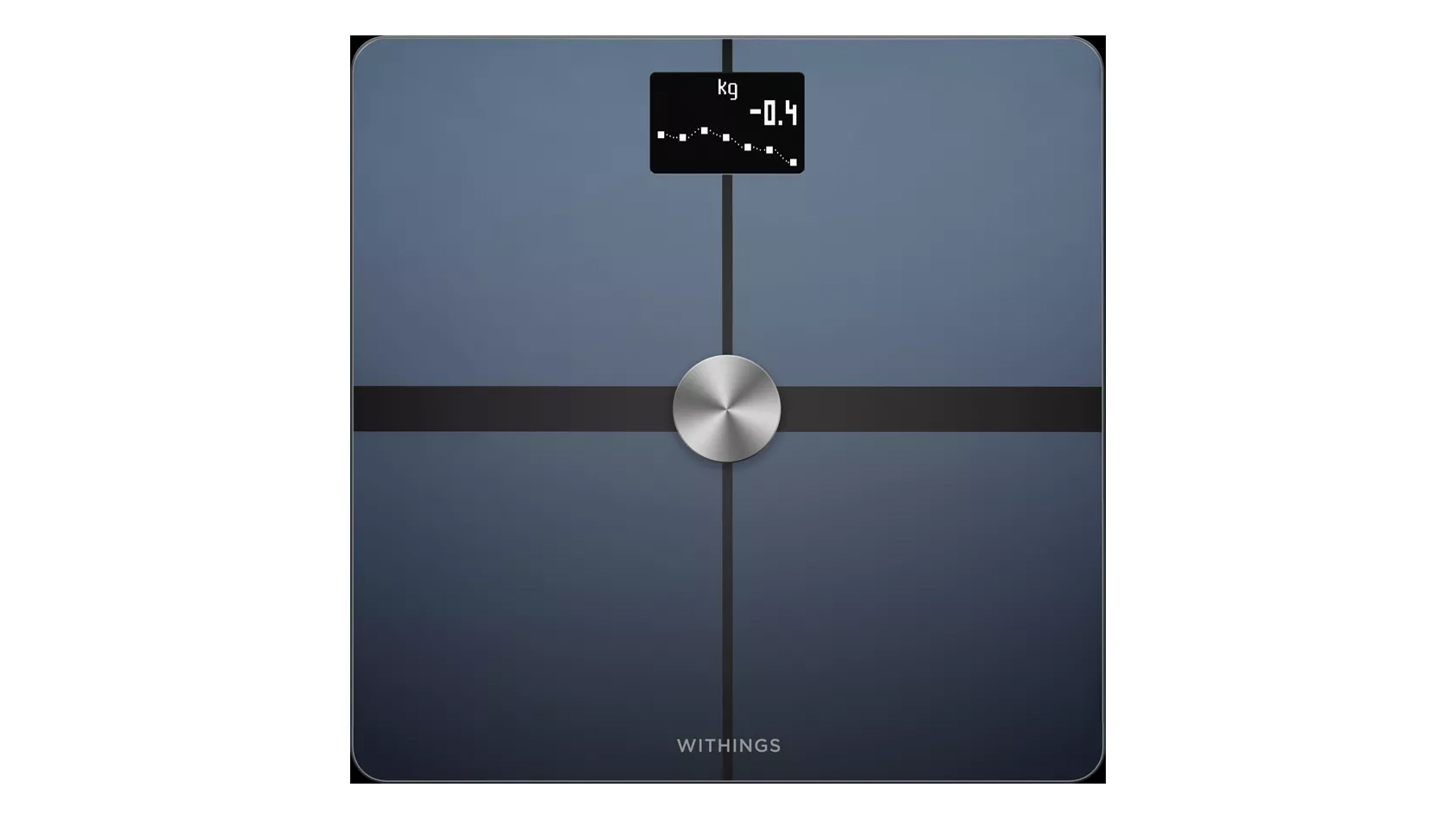
5. Withings Body+ Scale
Our expert review:
Specifications
Reasons to buy
Reasons to avoid
The Withings Body+ is a very popular scale, boasting a range of quirky features like nutrition tracking (which you have to put in manually) and a weather forecast. Luckily, it also has the basics covered, with body composition allowing you to measure things like your fat-to-muscle ratio and bone density. It also has some position control technology, which will advise you where to stand on the scales for the best reading.
Like a lot of the other scales, it packs in helpful tracking and coaching tips. We also highly recommend the companion app, which is genuinely useful and pleasantly laid-out. Unfortunately, it can only accommodate up to eight users, which is a much smaller number than the other scales in this list.
This model has netted 4.4 out of five stars on the Withings website, with users commending its easy-to-use interface and its accurate weight measurements. However, some users caution that the body fat calculations aren't entirely accurate – although the general tracking of this metric will show that you're heading in the right direction.
This product is currently in the process of being tested. Once we have finished, we will update this guide accordingly.
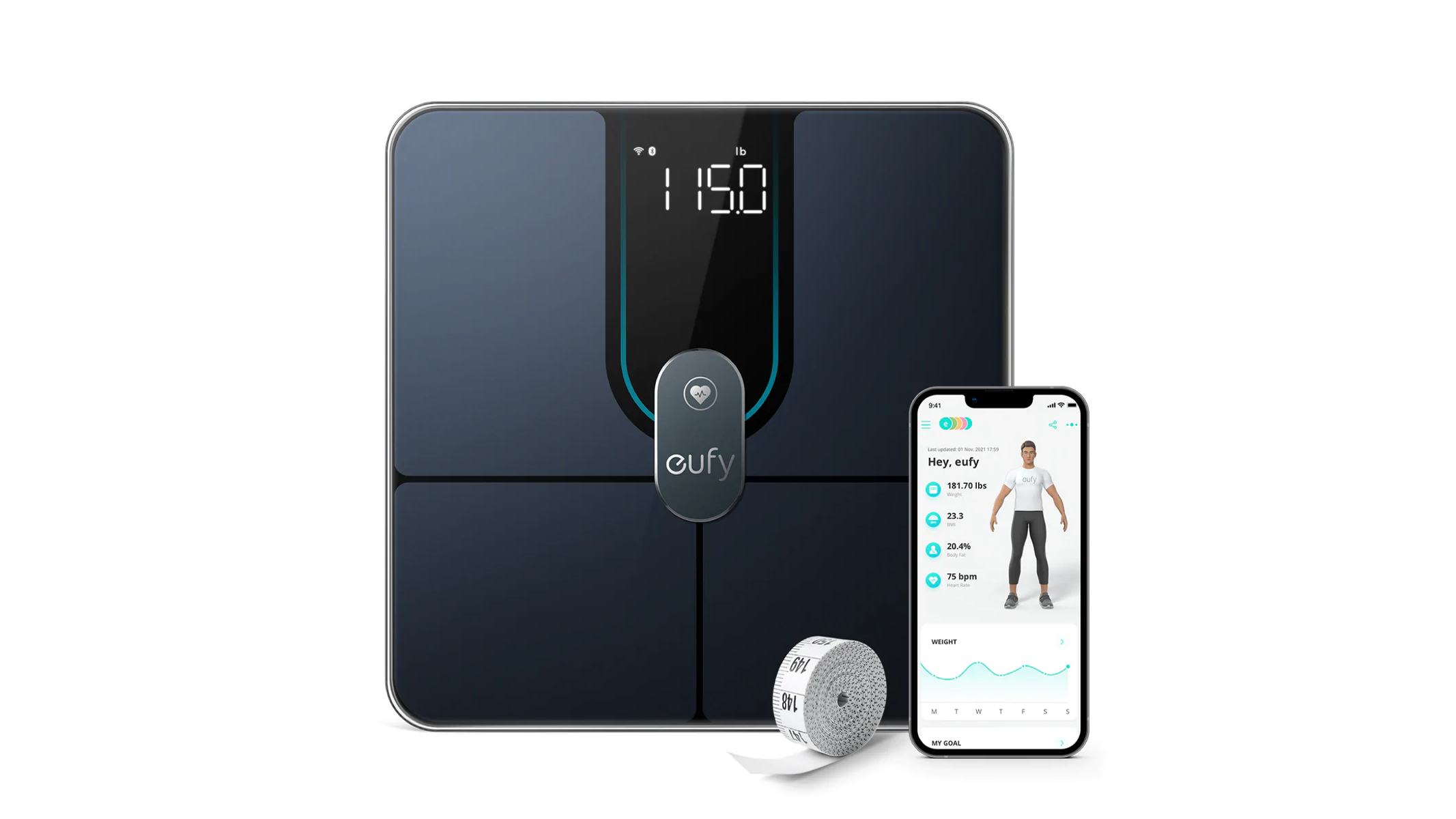
6. Eufy Smart Scale P2 Pro
Our expert review:
Specifications
Reasons to buy
Reasons to avoid
There's a lot to like about this product from Eufy. It can be used by an unlimited number of users, which is useful if you have an exceptionally large household, and it can calculate all the basic measurements like body fat, muscle, weight and water. It can also track your heart rate, bone mass and visceral fat.
The handy companion app has good reviews, with people praising its easy layout, but be aware that the scale will also generate a 3D rendering of your body after taking your readings: something not everyone will enjoy.
Reviews are generally favorable for this model, with Amazon customers awarding the scale 4.7 out of five stars. Happy customers praise its waterproof features, straightforward app and consistent measurements. On the flip side of this, a handful of unhappy customers have complained about inaccurate readings.
This product is currently in the process of being tested. Once we have finished, we will update this guide accordingly.
How we tested
We tested the scales for body fat by standardizing our weighing routine with multiple daily weigh-ins, including first thing in the morning, then again at lunchtime and then five minutes after that. We tested the smart scales for a minimum of two weeks, making notes of how easy they were to set up and use. Where we haven't finished testing a product, we've noted this in the article above.
We also looked at design, price, features, accuracy and performance, then analyzed the effectiveness of the companion smartphone apps. Finally, to get a proper sense of the accuracy of the smart scales for body fat, we used a professional body composition machine at the gym to compare results.
Do scales with body fat work?
Before we look at the evidence, here’s the science bit. When you step on the scales with bare feet, a small electrical charge is sent up into your body. It’s perfectly safe, and you can’t feel it happening, although disclaimer: anyone with a pacemaker, medical implant or who is pregnant should check in with their doctor before using one.
By measuring the various rates of resistance – or impedance – it faces, the scale then maps body composition. The companion app will then show your metrics, usually including muscle mass, bone density, body fat, visceral fat, protein, basal metabolic rate and fat-free body weight.
Accuracy can vary between specific models and just because a smart scale is expensive doesn’t guarantee that it will give a realistic reading. Also there are a ton of variables that can affect results – from gender, where you store fat in the body, age and height.
What’s more, a body fat scale can only tell you the overall percentage, and not where on your body you are storing potentially dangerous fat.
A study published in Journal List concluded that smart scales are not accurate for body composition and should not replace medical and research laboratory tests DEXA (Dual Energy X-Ray Absorptiometry) in patient care.
Start your week with achievable workout ideas, health tips and wellbeing advice in your inbox.
Maddy Biddulph is a journalist specializing in fitness, health and wellbeing content, with 26 years in consumer media working as a writer and editor for some of the bestselling newspapers, magazines and websites in the US and UK, including Marie Claire, The Sunday Times and Women’s Health UK.
She is a CIMPSA-certified PT and works one-on-one with clients, as well as running Circuits Club classes which mixes cardio and strength training and chair-based exercise classes for seniors.
-
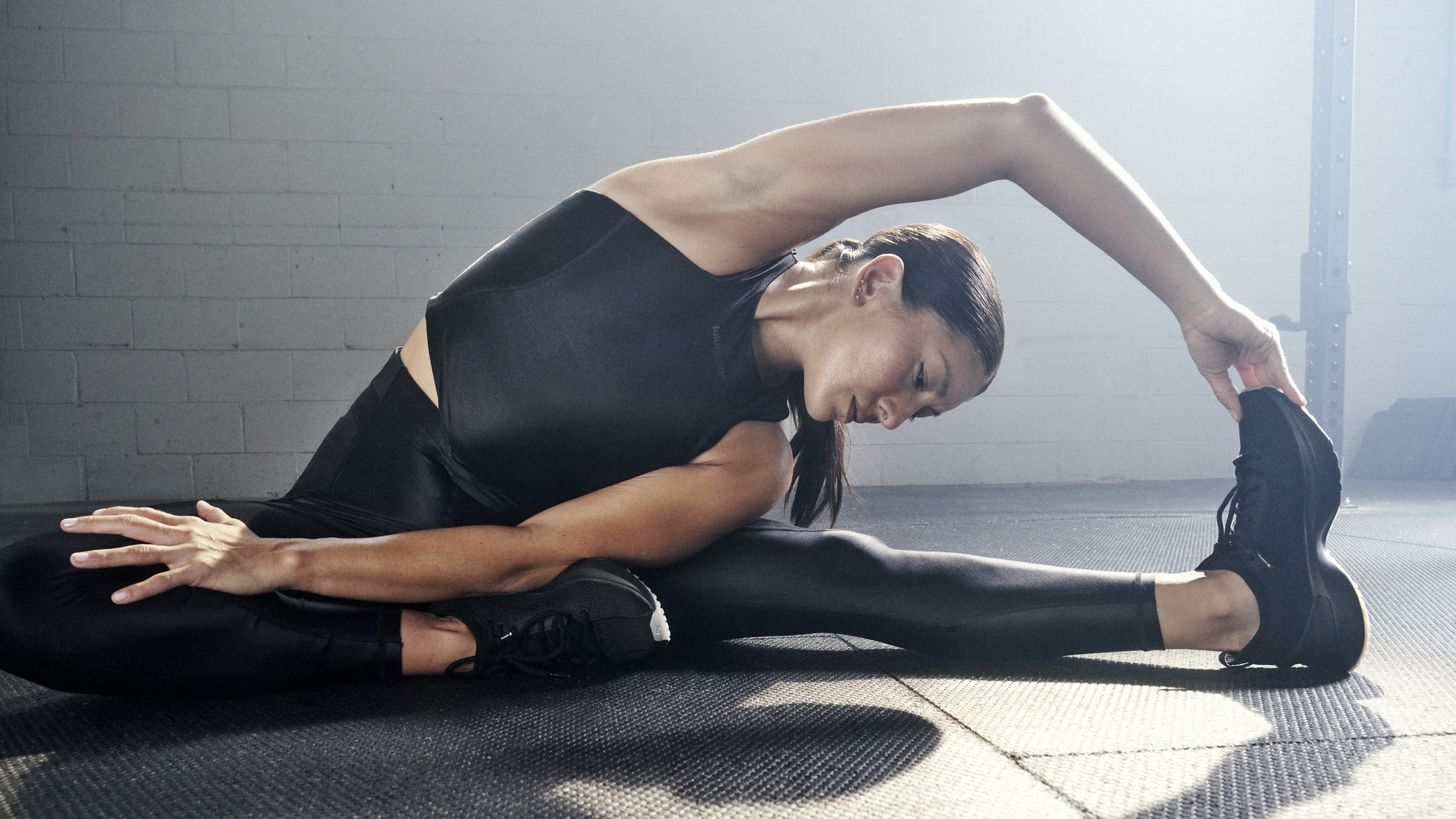 “Fitness enhances my daily routine, not overwhelms it”—Jennifer Aniston’s personal trainer Dani Coleman shares the exact workout routine she uses to maintain a healthy balance
“Fitness enhances my daily routine, not overwhelms it”—Jennifer Aniston’s personal trainer Dani Coleman shares the exact workout routine she uses to maintain a healthy balanceDani Coleman reveals her weekly workout diary and says she prioritizes “consistency over intensity”
-
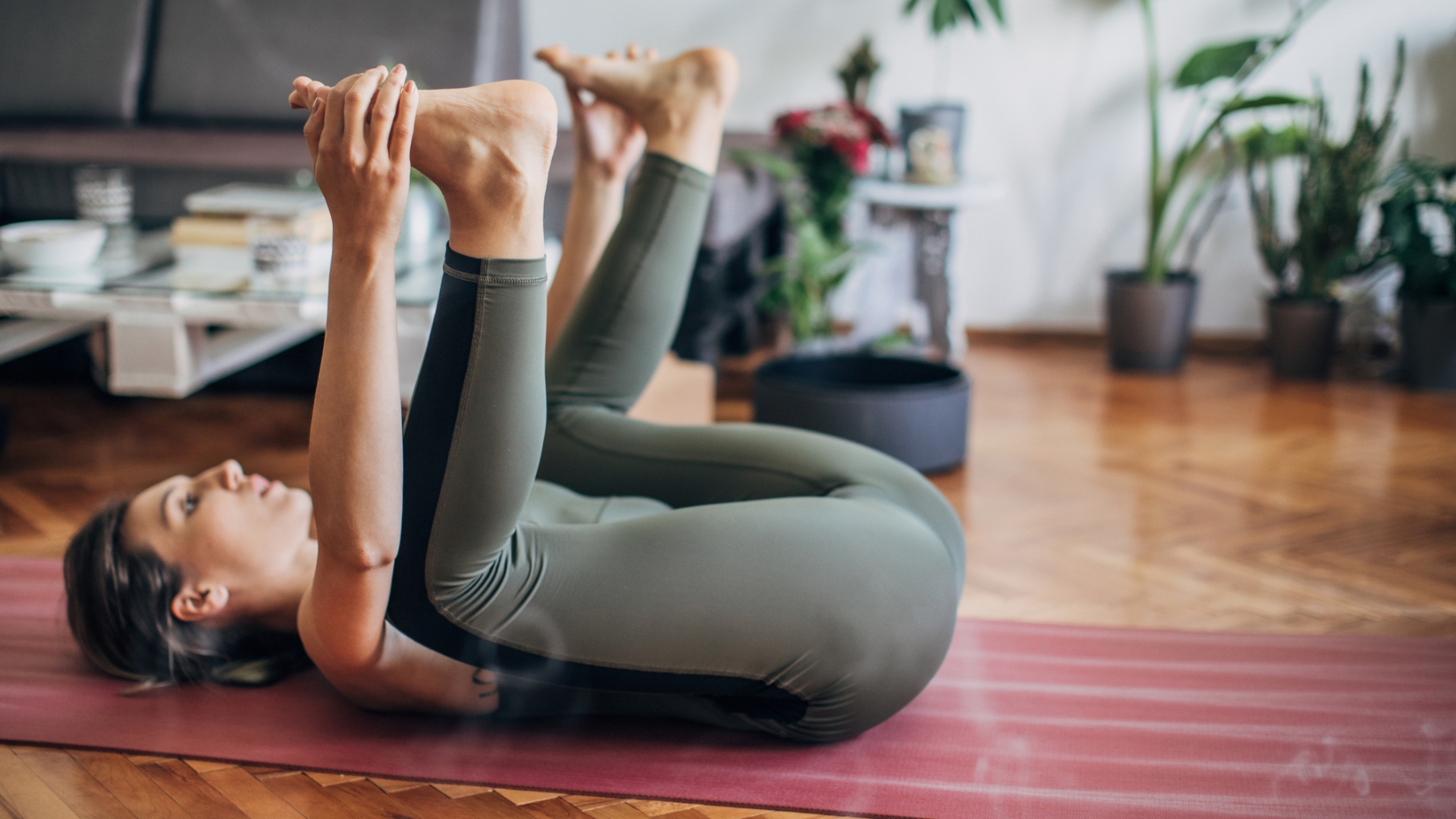 A physical therapist says yoga is highly effective for stress management and shares her top three poses for high-stress days
A physical therapist says yoga is highly effective for stress management and shares her top three poses for high-stress daysHow to use yoga to reduce stress
